يحاول ذهب - حر
Famous Friends
March 2017
|Cobblestone American History Magazine for Kids
Most people have heard of Helen Keller’s remarkable friendship with Anne Sullivan, her “Teacher,” who first taught her how to communicate.

As the news of what Sullivan had achieved with Keller spread in 1887, Keller became so famous that many people wanted to meet her. Over the next 80 years, Keller’s fame gave her introductions to a wide variety of notable people—inventors, writers, world leaders, presidents, and actors. Once they met her, many became her friend.
Bell’s Impact
Keller first met inventor Dr. Alexander Graham Bell when she was six years old. Her parents had taken her to a special doctor to see if anything could be done about her eyesight. The doctor referred the Kellers to Bell. Bell had become famous for inventing the telephone in 1876, but when Keller met him, he was working with children who were deaf. Keller recalled later that she could sense Bell’s kindness. She sat on his knee and examined his watch, which he made vibrate, to her delight. It was Bell who referred the Kellers to the Perkins Institution, which brought Anne Sullivan into Keller’s life.
At age seven, Keller wrote to Bell, telling him how much she enjoyed their meeting. She spent time with Bell and his wife, who was deaf from a childhood case of scarlet fever, at their homes in Washington, D.C., and in Nova Scotia, Canada. As a 13-year-old, Keller accompanied Bell to Chicago’s World’s Columbian Exposition in 1893.
Bell gave Keller both emotional and financial support. When she decided she wanted to go to college, he encouraged her and set up a fund to help pay some of her expenses. For her part, Keller dedicated her first autobiography with the words, “To Alexander Graham Bell, who has taught the deaf to speak and enabled the listening ear to hear speech from the Atlantic to the Rockies.” Their friendship lasted until Bell’s death in 1922.

هذه القصة من طبعة March 2017 من Cobblestone American History Magazine for Kids.
اشترك في Magzter GOLD للوصول إلى آلاف القصص المتميزة المنسقة، وأكثر من 9000 مجلة وصحيفة.
هل أنت مشترك بالفعل؟ تسجيل الدخول
المزيد من القصص من Cobblestone American History Magazine for Kids
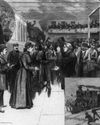
Cobblestone American History Magazine for Kids
nellie Bly Journalist
nellie Bly's first newspaper articles appeared in print when she was just 20 years old.
2 mins
Cobblestone February 2025: Women Trailblazers of the 1800s

Cobblestone American History Magazine for Kids
Arabella Mansfield -Lawyer
Arabella Mansfield started out life as Belle Babb (1846-1911). She grew up in a Midwest family that valued education. In 1850, her father left to search for gold in California. He died in a tunnel accident a few years later.
2 mins
Cobblestone February 2025: Women Trailblazers of the 1800s
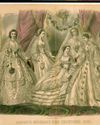
Cobblestone American History Magazine for Kids
Sarah Josepha Hale Editor
Long before Vogue or Glamour caught women's attention, Godey's Lady's Book introduced the latest fashions.
3 mins
Cobblestone February 2025: Women Trailblazers of the 1800s

Cobblestone American History Magazine for Kids
Louise Blanchard Bethune - Architect
Louise Blanchard Bethune (1856-1915) showed early promise in math. Lucky for her, her father was the principal and a mathematics teacher in a school in Waterloo, New York. Instead of going to school, Louise's father taught her at home until she was 11 years old. She also discovered a skill for planning houses. It developed into a lifelong interest in architecture and a place in history as the first professional female architect in the United States.
2 mins
Cobblestone February 2025: Women Trailblazers of the 1800s
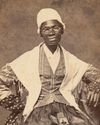
Cobblestone American History Magazine for Kids
Sojourner Truth Speaker
There was a time when slavery wastes abolished the institution over a number of decades. New York abolished slavery in 1827. Isabella Baumfree (c. 1797-1883) was born enslaved in Hurley, New York. When she was nine, she was taken from her parents and sold. She then was sold several more times. Some of her owners were cruel and abused her. During that time, she had several children.
1 mins
Cobblestone February 2025: Women Trailblazers of the 1800s
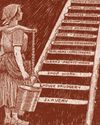
Cobblestone American History Magazine for Kids
Getting Started
In this editorial cartoon, a young 19th-century woman must overcome the obstacle of carrying a heavy burden while climbing a multirung ladder before she can achieve \"Equal Suffrage.\"
2 mins
Cobblestone February 2025: Women Trailblazers of the 1800s
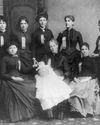
Cobblestone American History Magazine for Kids
Leonora M. Barry - Investigator
When Leonora M. Barry (1849-1923) was a young girl, her family left Ireland to escape a famine. They settled in New York. Barry became a teacher. In 1872, she married a fellow Irish immigrant. At that time, married women were not allowed to work. So, Barry stayed home to raise their three children.
2 mins
Cobblestone February 2025: Women Trailblazers of the 1800s

Cobblestone American History Magazine for Kids
Finding a New Path
For many Americans, this month's mystery hero represents the ultimate modern trailblazer. She is recognized by just her first name.
1 min
Cobblestone February 2025: Women Trailblazers of the 1800s
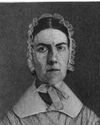
Cobblestone American History Magazine for Kids
The Grimké Sisters Abolitionists
Every night, Dinah was supposed to brush the E hair of her mistress, Sarah Moore Grimké (1792-1873). But one night, 12-year-old Sarah stopped Dinah. She wanted to help Dinah instead. They had to be quiet so they wouldn't get caught. It was 1804 in Charleston, South Carolina. The Grimkés were among Charleston's major slaveholding families. Strict laws regulated the behavior of both master and enslaved people.
4 mins
Cobblestone February 2025: Women Trailblazers of the 1800s
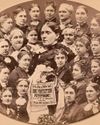
Cobblestone American History Magazine for Kids
Frances Willard Leader
During Frances Willard's lifetime (1839-1898), she was the best-known woman in America: She headed the largest women's organization in the worldthe Woman's Christian Temperance Union (WCTU). In that role, her abilities shone as a social activist, a dynamic speaker, and a brilliant organizer. She educated women on how to run meetings, write petitions, give speeches, and lobby state and federal legislators.
2 mins
Cobblestone February 2025: Women Trailblazers of the 1800s
Translate
Change font size
